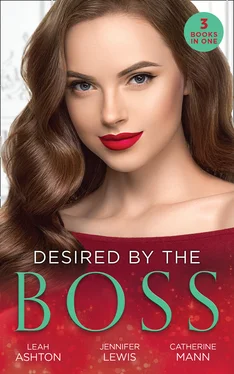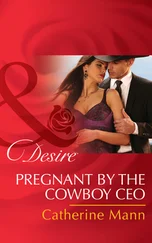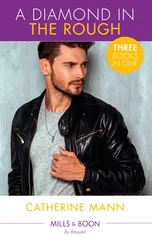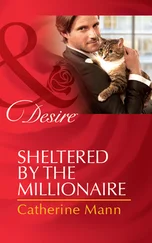He slid off his stool, then walked around to the other side of the kitchen bench. She watched as he filled the kettle, then plonked it without much care onto its base. But he didn’t flick the lever that would turn it on.
He grabbed April’s mug from the sink, and another from the overhead cupboard, then put both cups side by side, near the stone-cold kettle.
‘Do you want to talk about it?’ she asked. She could only guess at whatever was swirling about in his brain. His attention was seemingly focused on the marble swirls of the benchtop.
His head shot up and their gazes locked.
‘No.’
‘Cool,’ April said with a shrug. ‘I don’t need to know.’
Although she realised she wanted to know. Really wanted to.
April slid off her stool, too. She skirted around the bench, terribly aware of Hugh’s gaze following her. She didn’t quite meet his gaze. She couldn’t. Even as thoughts of discovering what was really going on in Hugh’s head zipped through her mind, other thoughts distracted her. About discovering how Hugh might feel if his lovely, strong body—hot as hell, even in jeans and jumper—was pressed against hers. If, say, he kissed her against the pantry door just beside him...
Stop.
This was Ivy and Mila’s influence, scrambling her common sense. It wasn’t how she really felt. She’d never felt like this.
She reached past him, incredibly careful not to brush against him, and switched on the kettle.
She sensed rather than saw him smile—her gaze was on the kettle, not him.
‘Let me help you,’ she said. ‘Stop trying to convince yourself you want something you don’t actually want. At all. Stop pretending.’
Too late, she realised the error of her ‘help him with the kettle the way she’d help him with his stuff’ metaphor. She’d ended up less than a foot away from him.
Or maybe it hadn’t been an error at all.
‘Okay,’ he said. His voice was deep. Velvety.
April looked up and their gazes locked.
It was like the stripy blouse moment all over again. But more, even.
She was suddenly unbelievably aware of her own breathing—the rise and fall of her chest was shallow, fast. And the way her belly clenched, the way her nails were digging into her palms to prevent herself from touching him.
‘I’ll stop pretending,’ he said.
His gaze slid to her lips.
She closed her eyes. She had to, or she couldn’t think.
The way Hugh was looking at her...
‘April...?’ he said, so soft.
Was that his breath against her lips? Had he moved closer so he could kiss her?
She refused to find out.
Instead, she stepped away. Two steps...three.
‘Good!’ she said. ‘Great! Let’s make time to go through the stuff I find each couple of days, okay?’
Hugh wasn’t thinking about the boxes. ‘What?’
April nodded sharply. ‘Okay, I can finish up here. Thanks for your help.’
He was gone a minute later—just as the kettle whistled to say that it had boiled.
Later, as she walked to the supermarket, all rugged up in scarf and coat, Hugh’s words echoed in her brain.
I’ll stop pretending.
But she wouldn’t stop pretending. She couldn’t.
For now she was April Spencer, not April Molyneux.
The thing was she had no idea what was pretend any more.

Hugh sat at his desk, typing a message to an old friend from university.
Ryan had completed the same computer science qualification that Hugh had, although he’d made his money in a completely different field—internet dating. Ryan’s innovative compatibility matching algorithm had been game-changing at the time. But his friend had long since sold the empire he’d built, and now ran an extremely discreet, exclusive online dating agency, using a new—Ryan said better—matching algorithm.
This had come in handy for Hugh.
Ryan’s system was cutting-edge, and Hugh honestly couldn’t fault it. He’d liked every woman he’d met through Ryan’s system—even if he hadn’t been attracted to them all. Or them to him.
After all—there still wasn’t an app that could guarantee that.
He didn’t date often, but when he did he was very specific. He liked to meet at quiet, private restaurants where it was easy to converse without distraction. He’d go to the movies, or to a show. He didn’t go to bars or pubs—there was too little order and too many people talking. He couldn’t think.
If things went well, after a few dates he might sleep over at his date’s place. But he never lingered long the morning after. Or stayed for breakfast.
Usually, at some point later, he’d be invited to a party, or to a family event.
He always said no.
At such events he would become ‘the boyfriend’. And he didn’t want that.
Understandably, usually things ended then.
A couple of times he’d met women equally happy to avoid a relationship. Those arrangements had lasted longer, until eventually they’d run their course too.
Of course he was always clear that he wasn’t after a relationship, and he was never matched with anybody who specifically wanted to settle down. However, it would seem that the ‘wanting a relationship’ and ‘not wanting a relationship’ continuum was not linear. And everyone’s definition of where they stood along that line varied. Wildly.
So a woman who started off not wanting a relationship might actually want a bit of clarity around her relationship with Hugh. Or an agreement of exclusivity.
And exclusivity, to Hugh, was an indicator of a relationship—not that he had ever dated more than one woman at once, however casually.
So at that point he was out.
He got it that he was weird when it came to relationships. Women always eventually asked him about his stance. But it wasn’t easy for him to define.
He knew, intellectually, that it originated from his mother’s serial dating. She had been quite openly on a quest to find her Mr Right after the disappearance of his deadbeat father. He’d become used to the cycle of hope and despair that each new boyfriend would bring, and he’d decided he had no wish to experience that for himself.
But—and this had been his original theory—the risk of a relationship ending in despair was surely reduced if you approached dating with comprehensive data on your side. If you were matched appropriately—your values, your interests, your goals—then surely you minimised risk.
And this, in his experience, was true. He had never experienced the euphoric highs or the devastating lows of his mother’s relationships. When he dated it was...uncomplicated.
But that was where his stance on relationships became much more about him. Because, despite all this data-matching and uncomplicated dating, he still didn’t want a relationship.
It was a visceral thing. When he woke up in a woman’s bed—he never invited them to his place—his urge to leave was not dissimilar from the way the bloody boxes that filled his mother’s house made him feel.
Trapped.
It all came back to the same thing: to Hugh, relationships were clutter.
Ryan: I’ll send you the link to our latest questionnaire—we’ve tweaked things a little so you’ll need to answer a few more compatibility questions.
Hugh: No problem.
Ryan: Then the system will automatically send you a shortlist. Same as always—if the women you say yes for also say yes then you’re set.
Hugh: Great. Thanks.
But it was weird... He’d been keen to talk to Ryan, but now he was losing enthusiasm. He’d been so sure that it was the six or more months since his last date that had triggered his interest in April. And today he’d almost kissed her.
Читать дальше













